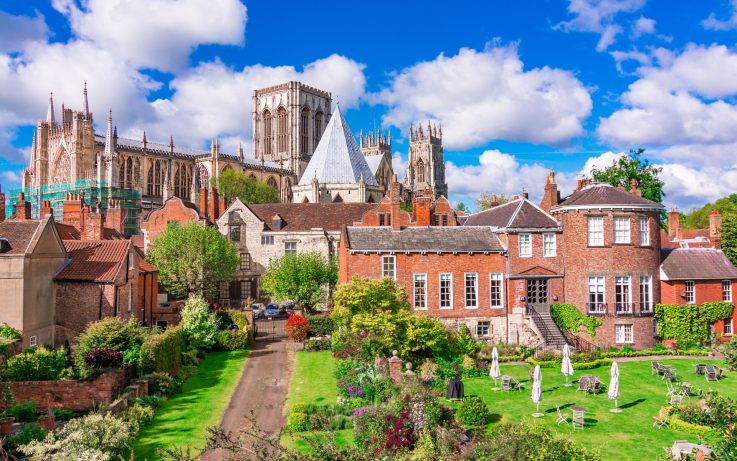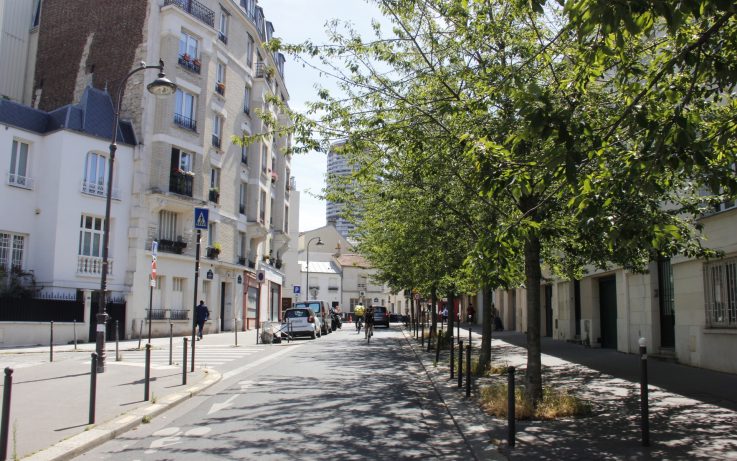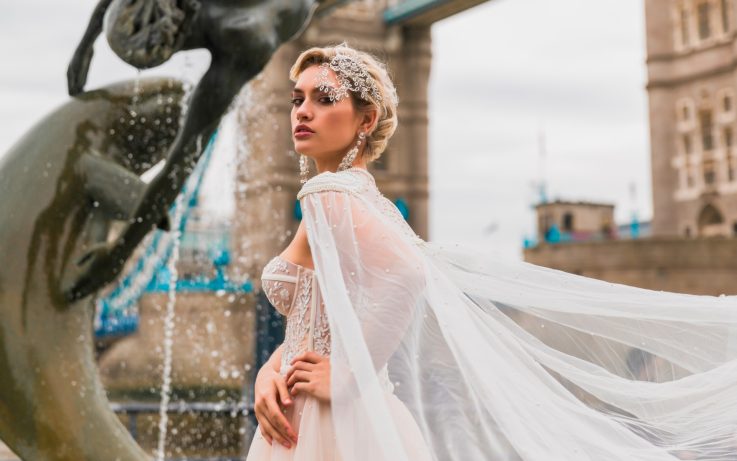How to get a fiancée visa or wife visa to the UK: the subtleties you need to pay attention to

International marriages have been known since time immemorial. But while in the past such unions were the prerogative of the upper classes, now the Internet has helped this phenomenon to become ubiquitous. We communicate, become friends and even fall in love through the World Wide Web. It’s hard to believe that there are state borders – now it’s enough to take a smartphone out of your pocket to see your beloved. But when a relationship goes from virtual to real, immigration laws come into play.
A frivolous attitude to this issue can turn into serious problems and a long separation. Therefore, it is better to understand in advance how to apply for a family visa to the UK, and even better – to seek help from qualified specialists who will help you to collect the necessary package of documents and fill in the forms correctly.
Even the very choice of a visa can cause difficulties for a person who is far from this topic. What is the difference between a wedding visa and a fiancée visa? Is it possible to apply for a wife’s visa if you are only going to marry a citizen of the United Kingdom? And if the bride has children from a previous marriage, will they be allowed into the country with their mother? In our article you will find answers to these and many other questions.
For your convenience and to avoid overloading the text with redundant definitions, we will use the terms “wife” and “fiancée” hereafter. Although, of course, all the same rules apply to fiancés and husbands, same-sex partners who wish to reunite with their other half living in Britain.
UK Marriage Visitor Visa (UK Marriage Visitor Visa)
An English wedding visa is issued for exactly one purpose – to marry. In fact, it is an ordinary visitor visa and has nothing to do with immigration to the UK. For example, it is needed if the newlyweds want to get married on the shores of the Foggy Albion and stay there for a honeymoon.
By and large, a wedding visa is for partners who are not British citizens – i.e. foreigners. Of course, you can get one if you are going to marry a British citizen, but it will be much more difficult as you will have to prove that you will not be staying in the country after the wedding.
The validity of a wedding visa to England is 6 months. After that, you will have to leave the United Kingdom, even if you are married to a British person. Of course, you cannot work, study or engage in commercial activities on this visa. It is also impossible to apply for another visa without leaving the territory of the country.
What will be required to obtain a wedding visa?
You must apply for a UK wedding visa no earlier than 3 months before the date of your trip to the kingdom. To obtain a visa you will need to submit the following documents:
- A passport with a blank page for a visa, valid for the duration of your stay in Britain;
- Visa fee payment receipt;
- Documents proving the connection with the country of permanent residence to show that the applicant will return to the home country after the ceremony;
- Financial documents that will prove that you have the funds to cover the costs of the trip, indicating the source of their origin;
- A certificate that the bride and groom are not in other marriages;
- Evidence that the wedding is actually planned in England – as such, correspondence with the venue or details of booking a date can be provided.
The processing of a wedding visa to England usually takes around three weeks after you submit your application.
UK Fiancé Visa (UK Fiancé Visa)
This is a family visa to England, which is issued to enable lovers to marry. It is required for couples where one of the future spouses has British citizenship or permanent resident status (ILR). Its validity period is the same as that of a wedding visa – 6 months. However, it is not necessary to leave the country afterwards – you can apply for an English wife visa right in the UK.
As the couple are staying in the UK rather than moving to the new spouse’s home country, the bride is treated as a prospective immigrant and checked in the same way as a wife visa applicant. In the first instance, to apply for a fiancée visa to England they are asked to provide evidence that the relationship is strong and long-standing. If communication has only taken place on the internet and the lovers have never met in person, the officer will obviously have a lot of questions.
How can you convince him of the strength of your feelings? Firstly, collect common photos – preferably from different locations and in different surroundings to make it clear that this is not a one-time meeting. Secondly, prepare documents testifying to the time spent together. For example, on a joint holiday, confirmed by airline tickets, travel vouchers or hotel reservations. If you have already managed to get acquainted with each other’s parents, and they gave you their blessing for the wedding, it is also desirable to formalise this in some material form and present it as a seriousness of intentions. Also, screenshots of correspondence in messengers and social networks will be convincing evidence for visa officers when obtaining a fiancée visa to the UK nowadays.
What will be required of the groom?
An important point without which a fiancée visa to England will not be granted is the level of income of the groom – he needs to show an annual income of at least £18,600. The exact list of documents that need to be attached to the application for this type of British family visa depends on the source of income.
Another point that visa officers pay attention to is the question of accommodation. It can be a man’s property, rented accommodation or even a hotel paid for the whole period of stay. The main thing is that the invited girl should have a place to live for the whole period of her stay in the country.
What will be required of the bride?
An applicant who plans to marry a British citizen is expected to have at least a minimum knowledge of English – A1 level (beginner or elementary) will be sufficient. But it is better to be able to explain herself at least on the simplest everyday topics. Your knowledge will need to be confirmed by an exam taken at a certified centre. In addition, you will need to take a tuberculosis test at an authorised centre listed on the official Home Office website.
However, proof of a strong connection to the home country is unlikely to be required. This is often requested for visitors’ visas, including wedding visas. This is to make sure that applicants are sure to return home and not become illegal immigrants. But in the case of a UK fiancée visa, the authorities realise that the woman is likely to be immigrating to the UK to reunite with her beloved.
What documents do I need to apply for a fiancée visa to England?
- The bride’s passport – with a blank page for the visa;
- Groom’s ID;
- Relationship Acknowledgements;
- Documents confirming that the bride is not in a previous marriage;
- A letter of invitation from the groom’s side;
- Documents proving the financial solvency of the groom;
- Information about the couple’s place of residence in England;
- A certificate of the bride’s successful completion of the English proficiency test;
- Negative TB test results on the bride;
- A booking for a wedding ceremony in a registry office or church (in Britain, marriages solemnised in churches have the same legal effect);
- Visa fee payment receipt.
All supporting documents not in English must be accompanied by a certified translation. You can only apply for a fiancée visa to the UK from outside the UK.
Wedding visa or fiancée visa to the UK – which one to choose?
Many newlyweds can’t decide whether they need a wedding visa or the one issued to brides. If both couples are foreigners, they can only apply for a wedding visa. But if one of the future spouses is British, then you can choose from 2 options. However, as it was said earlier, keep in mind that you will have to prove to visa officers that the invited partner will return to their country after the marriage – to do this is quite difficult. Also, when choosing between these two visas, you should pay attention to the following important points:
- A UK wedding visa is much cheaper – the visa fee is just £95. A UK bridal visa, on the other hand, costs £1,523.
- If a woman obtains a wedding visa, she will in any case have to leave the country after six months in order to apply for a wife’s visa to the UK from home. But the fiancée visa allows her to do this immediately in the United Kingdom without leaving her husband.
UK Spouse/Civil partner visa (UK Spouse/Civil partner visa)
The UK spouse visa is granted for 2.5 years, or rather 30 months if applying in England and 33 months if applying from abroad. Further it can be extended for the same period. Of course, if the marriage continues to exist during this time.
The paperwork procedure can be roughly divided into two parts:
- As with all long term UK residence visas, when applying for an English Wife Visa the applicant will first receive a passport sticker which entitles them to enter the country once, usually for a period of 3 months.
- Upon entry, the applicant must obtain a biometric card which confirms the entire duration of the visa issued. In fact, this card contains information on the type of visa issued to the applicant, his/her personal data (name, date of birth, nationality) and a list of possible restrictions inherent to a particular type of visa (e.g. on a wife’s visa one cannot use state financial aid).
A wife visa holder in the UK can study, work, be self-employed or, on the contrary, do none of these things and live on her husband’s full support. The English wife visa is an immigration visa – after five years of residence in the United Kingdom, you can apply for permanent residence, and immediately thereafter for citizenship.
What documents do I need to apply for my wife’s visa to England?
In general, this list is similar to the one required when applying for a fiancée visa to the UK – here you will also need documents about the husband’s wealth, the availability of housing, an English language certificate and, of course, identity documents of the partners. Except that instead of the booked date of the wedding will already be a marriage certificate. And by the way, it does not have to be issued in England – the wedding can take place in any other country. But if it is not an English-speaking country, the certificate, of course, will have to be translated.
How much does a wife’s UK visa cost?
The cost of this visa varies depending on where you apply:
- £1,048 – if applying within the United Kingdom;
- £1,538 – if filing in another country.
A further £19.20 may be required if the applicant’s passport is not biometric and fingerprints will need to be taken separately (within the UK only).
In addition, you will need to pay the Immigration Medical Fee – the right to use the IHS free health care system in the UK – which is £624 per year. It must be paid for the whole period for which the wife’s visa to England is granted – so when applying from abroad the medical fee will be £1,872, and when applying for a visa within the country – £1,560.
If a woman has a child and plans to include them in her application for an English wife’s visa, the cost will increase proportionately. The spouse will have to show more money to support the family. If there is only one child, a family of 3 will need to show an annual income or savings of £22,400. For each subsequent child, a further £2,400 must be added to this amount.
UK Visa for Unmarried Partners (UK Visa for Unmarried Partners)
This is a special case of the classic spouse visa to the UK – a partner visa is intended for couples who have been living together for at least two years but for some reason have not legalised their relationship. In particular, it can also apply to same-sex couples, to whom British law is quite loyal, recognising their choice as an integral part of human rights.
However, in this case you will have to prove the authenticity of your relationship – photos and touching correspondence together will not be enough. In the absence of a marriage certificate, it is highly desirable to provide substantial evidence of living together – for example, a lease agreement or utility bills issued to both partners, a joint bank account statement or letters from official and government agencies sent to the same address. Any evidence that shows that the partners have been living together as a family for at least 2 years is also suitable.
What should I do if my family visa to England is refused?
Unfortunately, this is not uncommon. Some people make mistakes when compiling a package of documents, while others fail to convince visa officers of the strength of their relationship. It is especially bad if the inspector suspects the couple of deception – for example, in cases when young people are confused about the facts, even if from excitement. Lying on an application can result in not just a refusal of an English family visa, but also a 10-year ban on entry to the country.
However, even a negative decision can be appealed. It is quite realistic to get a visa to England after a refusal. Usually immigration officers send an exhaustive answer, what exactly caused the negative verdict, so there is a chance to correct the deficiencies. There are several options for solving this problem.
Applying for a review of the case
Suitable in cases where the applicant believes that the visa inspector has missed some details or approached the issue incorrectly. In this case, the documents may be reviewed again. However, nothing can be added, corrected or changed in the submitted papers – the re-examination will be based on the original package of documents.
You have 14 days to make this application if you are already in Britain or have been refused at the border. And 28 days if the applicant is a foreigner in another country.
Filing an appeal
In this case, the case will be considered by an immigration tribunal, which is part of the judicial system and has nothing to do with the authorities that made the original decision. This is where you can add new documents and information.
This is most often resorted to when an applicant believes that the refusal of a fiancée or wife’s visa to the UK is contrary to UK immigration law (simply put, the inspector has seriously misjudged the case) or when a person’s rights have been grossly infringed. Separation of spouses fits well under this point. And if the couple already have a child, it can be seen as an unacceptable mishap all the more.
However, appeals take quite a long time to be heard – the courts can drag on for more than a year. But in the end, the decision may still be made in favour of the plaintiff.
New visa application
If you do make mistakes when applying for a family visa to the UK, it is often easier to try again. In order to get it right the second time, it is better to take advice from experienced immigration lawyers who specialise in this area – because each failed application significantly reduces your chances of becoming a resident of Foggy Albion.
Unfortunately, in this case you will have to pay another visa application fee. And if £95 for a wedding visa is not very critical, then £1,538 for a wife’s visa to the UK can hit the family budget. A second application will be processed in the same way as the first – from 3 to 8 weeks.
Obtaining permanent residence and citizenship in the UK
Of course, any couple getting married expects to live together happily ever after. And if all goes well, it is logical to assume that the foreign partner will end up with a permanent residence permit and then UK citizenship.
Permanent residence permit (IRL)
This status is granted indefinitely and actually equates the immigrant with other Englishmen. It can be obtained after 5 years of residence in the country on the wife’s English visa. To get this status you will need to pass two exams: an English test and a test on the history and culture of the country. Your language level should correspond to the B1 level according to the European classification. We do not need to remind you that the spouses must live together and spend most of their time on the territory of the country during the 5 years of stay.
British citizenship
If the applicant is married to a British citizen, then, unlike other visas, she does not have to wait 12 months after her permanent residence, but can apply for citizenship immediately after acquiring this status. In this case it is necessary to prove that the applicant has been absent from England for not more than 270 days in the 3 years preceding the date of application for naturalisation and not more than 90 days in the last year.
The process consists of 2 steps:
- Naturalisation;
- Obtaining a British passport.
The applicant will again need to prove her knowledge of the English language and British customs by means of tests. Of course, the future citizen is expected to be fluent in both.
When a British passport is obtained, the immigration itinerary of a foreign bride comes to an end. Although a new life as a citizen of the Kingdom next to a loving English spouse is just beginning!
FAQs about Spouse/Fiancée Visa
What are the characteristics of a UK prenuptial agreement?
There are three types of relationship agreements used in today’s British society: nuptial agreements, civil partnership agreements, and cohabitation agreements.
Nuptial agreements can be split into prenuptial and postnuptial agreements. The former is drawn up before the marriage and the latter, during or after the marriage. These agreements record the ownership of a couple’s future property. In the event of a divorce, the UK courts will consider the terms of such an agreement.
In the UK, spouses are not bound by strict rules, regarding how their nuptial agreement should be structured or what it should contain.
The British court system is famous for handling divorce cases thoroughly. The courts usually follow the rulings of the case law or common law. This incentivises people to enter into nuptial agreements and ensures that the court makes fair judgements.
Civil partnership agreements can also be divided into pre- and post-civil partnership agreements. Sometimes they are referred to as pre- and post-registration agreements. They will be taken into account in case of dissolution of the partnership.
Cohabitation agreements have become very popular among unmarried couples living together. The agreement sets out the rules for cohabitation and the division of joint assets if the relationship ends.
What are the financial requirements for UK Spouse and Civil Partner Visa?
There are a few requirements that visa applicants must meet. A family must have a combined income of at least £18,600 a year.
The amount will be bigger if you have dependent children. In this case, you or your British spouse/partner will need to provide extra money for your children as follows:
- £3,800 a year for your first child;
- £2,400 a year for each additional child.
Let’s take the example of a British husband and his non-British wife with two non-British children under 18. The couple’s combined income must be £24,800 to be approved for a Spouse Visa.
You don’t need to show extra income if you have children who are:
- British citizens;
- Irish citizens;
- settled in the UK (with indefinite leave to remain);
- applicants under the EU Settlement Scheme.
What is the difference between a Fiancée visa and a Marriage Visitor visa to the UK?
Non-UK citizens can apply for a British Fiancé/Fiancée Visa if they want to get married or register a civil partnership with a British citizen or a permanent resident in the UK. You can stay in the UK for up to 6 months on such a visa and then apply for a Spouse visa without leaving the UK. This is the key difference and advantage compared to the Marriage Visitor visa.
The Marriage Visitor visa allows you to have a wedding ceremony in England if you have decided to celebrate this important day in the unforgettable setting of this country. This visa is ideal for non-UK citizens who want to get married in the UK. They can come, have the ceremony, explore the country as tourists, and then leave. They can’t switch to another visa from within the UK.
They can enjoy a 6-month honeymoon in the British Isles before leaving the country.
If you plan to marry a British citizen and want your Marriage visa to be granted, you have to prove you intend to return to your home country after the marriage and apply for a Spouse visa there. You can’t work or run a business while you are in the UK on this visa as all these require another visa that you can apply for outside of Great Britain.
How long does it take to obtain British ILR and citizenship while staying on a UK Spouse visa?
To get British ILR (settlement), you must live in the UK on your Spouse visa for five years.
You can apply for British citizenship immediately after getting ILR if your spouse is a British citizen. This is a huge plus because other visas require one more year before you can apply for a UK passport.







